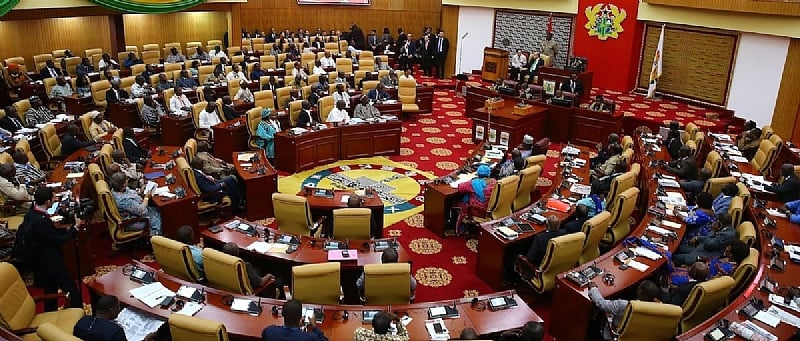The Ghanaian Parliament has officially recessed, marking the end of the Second Meeting of the First Session of the Ninth Parliament of the Fourth Republic. This adjournment, effective August 1, 2025, follows a demanding legislative period characterized by extended sittings, intense debates, and the passage of crucial bills and agreements. The break provides an opportunity for Members of Parliament (MPs) to reconnect with their constituents, conduct oversight activities, and prepare for the upcoming budgetary sessions.
The weeks leading up to the adjournment witnessed a flurry of legislative activity, with MPs working diligently, often late into the night, to address key national issues and complete their legislative agenda. This dedicated effort, though occasionally marked by partisan disagreements, ultimately demonstrated the Parliament’s commitment to fulfilling its responsibilities to the nation. The Speaker, through First Deputy Speaker Bernard Ahiafor, commended the MPs for their perseverance and dedication, acknowledging the challenging nature of the session and emphasizing the importance of their work.
The Speaker’s message underscored the significance of the recess period, emphasizing that it is not a vacation but rather an opportunity for MPs to engage directly with their constituents, assess the impact of legislation, and further strengthen the foundations of parliamentary democracy. This period allows MPs to gather feedback from the people they represent, understand their concerns, and effectively represent their interests in subsequent parliamentary sessions. This engagement is crucial for ensuring that parliamentary decisions reflect the needs and aspirations of the Ghanaian populace.
While the full parliamentary sessions are suspended, the work of the Parliament continues. Parliamentary committees may be convened to address urgent matters that require immediate attention. These committees, specializing in various areas of governance and policy, play a crucial role in scrutinizing legislation, conducting investigations, and providing oversight of government activities. This ensures that even during the recess, the Parliament remains responsive to emerging issues and can address critical national concerns.
The recess period also provides MPs with the opportunity to undertake field oversight visits. These visits allow them to directly observe the implementation of government programs and projects, assess their effectiveness, and identify any challenges or shortcomings. This firsthand experience provides valuable insights that inform parliamentary debates and contribute to more effective policymaking. By engaging directly with the realities on the ground, MPs can ensure that government initiatives are aligned with the needs of the people they serve.
Parliament is scheduled to reconvene in October 2025. The upcoming session will focus on crucial aspects of governance, including budgetary preparations, pending legislation, and emerging policy debates. As Ghana navigates the final quarter of the fiscal year, the Parliament will play a critical role in shaping the nation’s economic and social trajectory. The budgetary process will involve detailed scrutiny of government expenditure plans, ensuring that resources are allocated effectively to address national priorities. The Parliament will also continue its work on pending legislation, ensuring that laws are passed to address pressing societal issues and promote the well-being of Ghanaians. Furthermore, the Parliament will engage in policy debates on emerging issues, providing a platform for diverse perspectives and contributing to informed decision-making. This comprehensive approach to governance ensures that the Parliament remains at the forefront of shaping Ghana’s future.














